Single Unders – How to Master Them?
Author:
Unlock your full potential by engaging with our experts and community! Have questions about your fitness journey or looking for expert advice on weightlifting techniques? Don’t hesitate — leave a comment below and Ihor Shymechko will provide a personalized answer and insights to help you reach your goals.
Torokhtiy is reader-supported. Some links are affiliate links, and we may earn a commission at no extra cost to you. See our disclosure page for details.
If you’re looking for an easy way to exercise that can be done just about anywhere, jumping rope is a great option. Whether you’re looking to improve your fitness, increase your muscular strength or just burn some calories, single unders have you covered.
Performing a single under isn’t as simple as just grabbing a rope and jumping. A methodical, progressive approach is the best way to master the basics before moving on to harder techniques such as double unders.
To help you, I’ve made a step-by-step guide and given some tips on mastering single unders.
Single unders are easy to perform once you’ve mastered the basics. Practice the different elements and get the timing before putting them together. Choose the right jump rope and size it correctly.
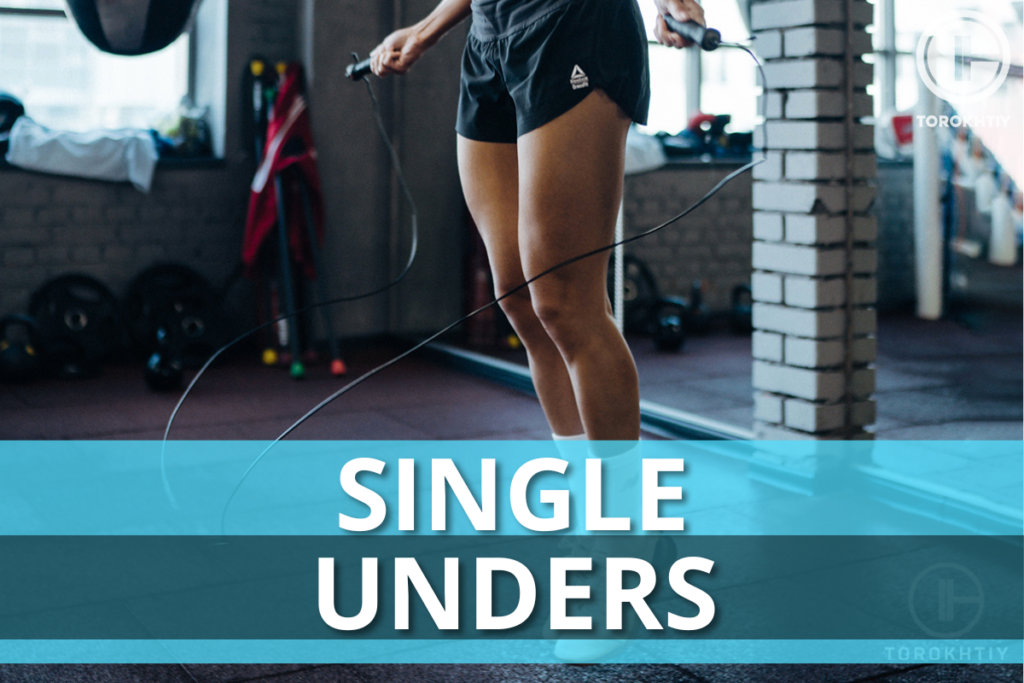
Single Unders: General Characteristics
A single under is where you jump and spin the rope once, using a suitable jump rope. Fitness single unders are fairly simple to perform once you’ve mastered the basics and provide an effective, affordable way to add exercise to your workout regime.
Single Unders: Progression
When it comes to jumping rope as a beginner, you need to be aware of some important techniques. Follow this step-by-step guide and you’ll be doing single unders in no time.
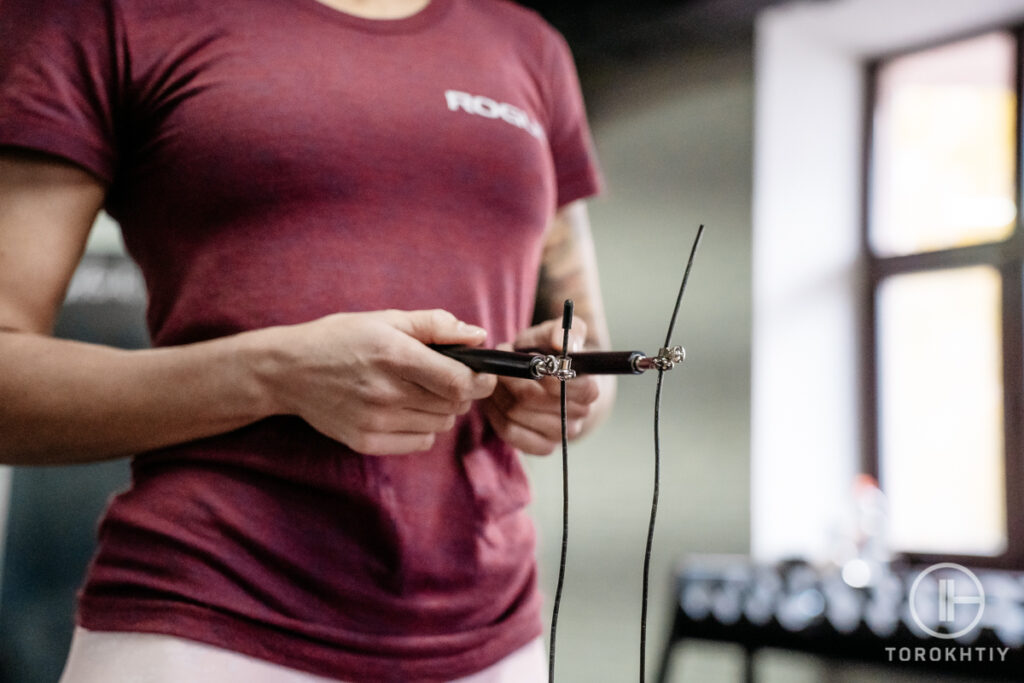
Step 1: Practice the different elements
Before doing single unders, you need to be aware of the different elements and be able to perform them with good technique so you can put them all together.
Start by practicing the jump. With your feet hip-width apart, practice jumping up and down repeatedly on the spot. Jump using the balls of your feet, making sure your heels don’t touch the ground. Keep a little tension throughout your body so you don’t move around too much. If you’re having trouble staying still, mark the floor with an X or draw a small circle.
For the arm swing, you want them to remain stable whilst mainly using your wrists to move the rope. You want your wrists to do the work, not your arms. Try to keep your elbows stable with your hands around the height of your hips and arms at 45 degree angles.
For both the jump and wrist movements, using a metronome set at a certain speed can help you to practice keeping a constant rhythm.
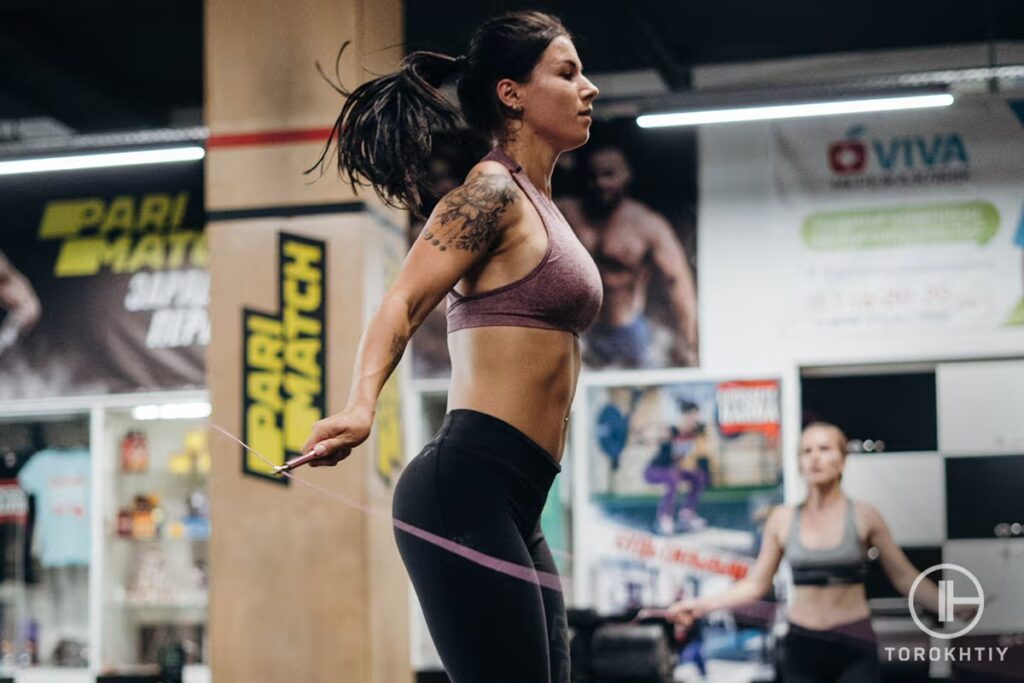
Step 2: Practice your timing
Once you have a good idea of the jump and wrist technique, next you need to practice the timing of both so you’ll be able to put them together with the rope.
A good single under exercise is to place both rope handles in one hand and use your wrist movement to turn the rope to one side whilst you practice the jump. To practice timing, try to coordinate your jump and rope swing so that you come off the floor as the rope is about to hit the ground at your side.
If possible, have a friend check your timing from the side so they can let you know how you’re doing. If not, use a gym mirror.
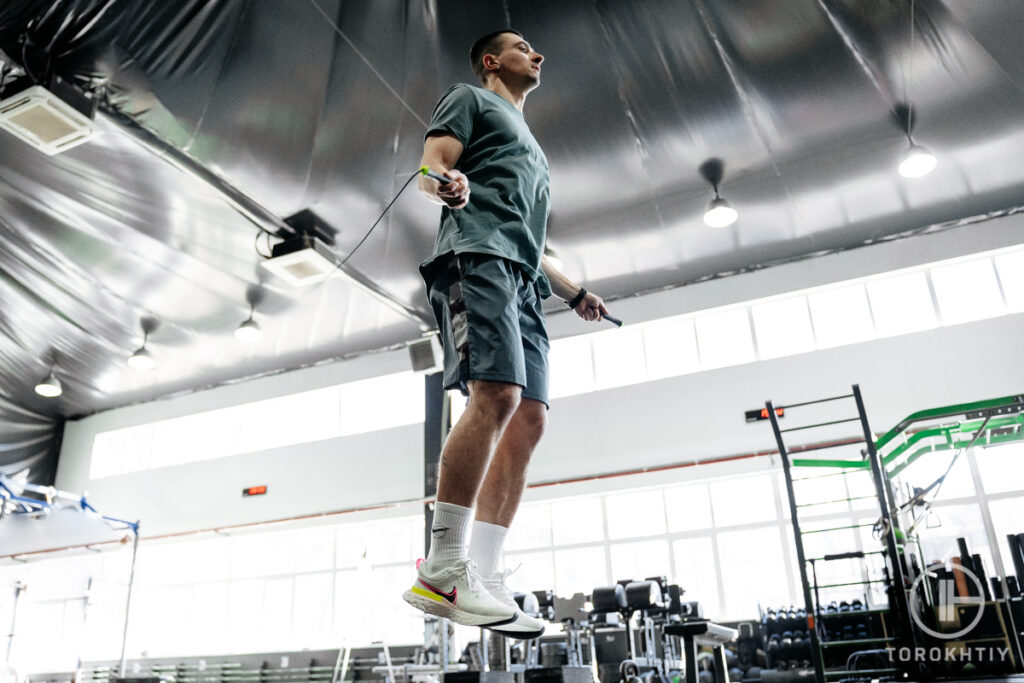
Step 3: Start in the correct position
Once you’ve got the technique and timing for the jump and arm swing, it’s time to put them together with the rope. Grip the rope handles loosely and hold the jump rope in front of you. Keep your hands together and elbows tucked in to start.
Step 4: Practice toe catching
Once you’re in the correct position with both hands on the rope, swing the rope behind your head.
Bring the rope forwards back over your head using the correct wrist motion and arm position, but don’t jump. Try to catch the rope in your toes before lifting your heels and letting the rope go through.
Repeat this until you feel comfortable catching the rope and letting it go.
Step 5: Perform a single under
Now that you’ve mastered the different elements, practiced the timing and general movement, it’s time to perform a single under.
Start slowly and progress up, performing one single under then two etc and keep building up your number until you can perform them naturally. The key is to keep practising so your body develops muscle memory for the correct movement.
3 Tips for Single Unders
Once you’ve started to do some single unders, here are some tips to help you master them and move on to more difficult jumping skills:
1. Size your jump rope correctly
If you don’t size your rope correctly, it can make performing single unders much more challenging.
You’ll need to make sure the rope is correct for your height and arm length. Most ropes come with a brand-specific sizing guide when purchasing that you need to make sure to use.
2. Choose a Suitable Jump Rope
Choosing a suitable jump rope is vital to making sure you can perform a single under in the most efficient way possible.
WBCM Adjustable Jump Rope
Jump ropes differ in weight, handle length, grip, and cable thickness, all of which affect the way you jump. If you’re looking for a jump rope that’s great for beginners, the speed jump rope from Warm Body Cold Mind is an excellent choice.
The WBCM Adjustable Jump Rope is a perfect choice for beginners looking to master single unders, featuring a durable, versatile design that won’t break the bank.
The 2.5 mm durable nylon-coated cable is lightweight and moves through the air efficiently without losing shape, helping you to practice single under with no issues.
The urethane handles feature tapered ends so you don’t need to worry about your grip, with the parented swivel-bearing system allowing the rope to move smoothly through the air as you jump.
3. Focus on maintaining your technique
Once you have the technique down and you can do a single under, the next step is making sure you can maintain the correct technique.
Losing your posture can make it harder for you to keep the same rhythm, meaning you’ll need to use more energy to perform the same movement.
If you want the rope to keep moving smoothly, make sure to keep the same wrist flick and try not to use your arms too much.
When you’re jumping up and down with a bit of tension throughout your body, try to keep the same distance between your feet and the ground every time you jump.
FAQ
Why are double unders better than single?
Double unders are better than single unders for a few main reasons. They are much harder to do, requiring more coordination and conditioning. They burn more calories as you have to work harder to spin the rope around twice in a single jump and also, they look much cooler.
How can single unders be improved?
Once you’ve mastered the single under, more complicated exercises include the alternate food step, the side swing, the crossover and the double under.
Conclusion – How to Master the Single Under
Single unders are a fun and simple way to improve your fitness and general conditioning. To master the single under, follow the step-by-step process I’ve described above and make sure to choose a suitable jump rope before sizing it correctly.
Have you mastered the single under yet? What about the double under? Let me know your jumping records down below.
Also read:
- How Long Should A Jump Rope Be
- Best Jump Rope For Boxing
- How To Do Double Unders
- How To Get Better At Jump Rope
- Speed Rope vs Weighted Rope
- How Long Should You Jump Rope
- What Muscles Does Jump Rope Work
References:
- Photos made by Torokhtiy Media Team
Why Trust Us?
With over 20 years in Olympic weightlifting, strength training, nutrition coaching, and general fitness our team does its best to provide the audience with ultimate support and meet the needs and requirements of advanced athletes and professional lifters, as well as people who strive to open new opportunities and develop their physical capabilities with us.
By trusting the recommendations of our certified experts in coaching, nutrition, and sports training programming, as well as scientific consultants, and physiotherapists, we provide you with thorough, well-considered, and scientifically proven content. All the information given in the articles concerning workout programming, separate exercises, and athletic performance, in general, is based on verified data.
The product testing process is described in more detail here.
Author: Ihor Shymechko
Pro Olympic Weightlifter, Coach
Best Results: Snatch – 208 kg,
C&J – 240 kg
Ihor has been a professional weightlifter since 1996, boasting over two decades of competition experience. His notable achievements include clinching the European Championship in 2009 and securing a silver medal in the 105kg division at the Senior World Championships in 2011. Ihor represented his country in the 2008, 2012, and 2016 Summer Olympics. After retiring from competitive weightlifting, he transitioned to coaching, leveraging his vast experience to guide athletes who now compete on both national and international stages.



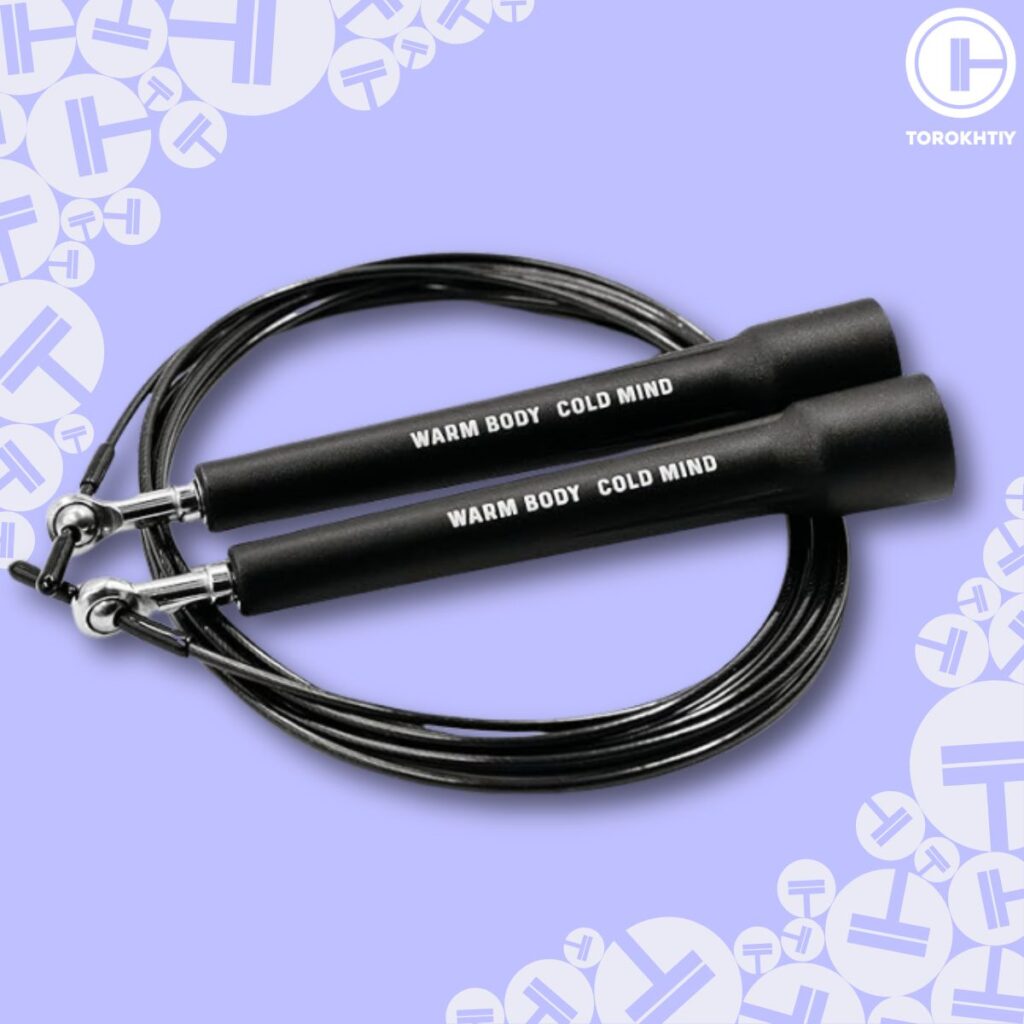
Still have questions after reading our article? Unlock your full potential by engaging with our experts and community! Don’t hesitate — leave a comment below and Ihor Shymechko will provide a personalized answer and insights to help you reach your goals.